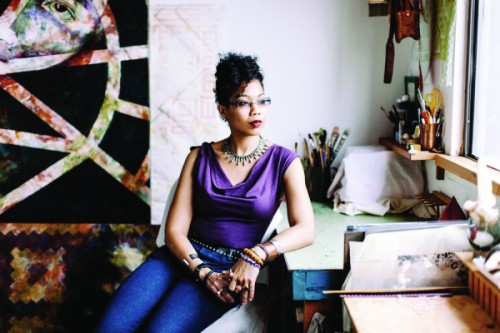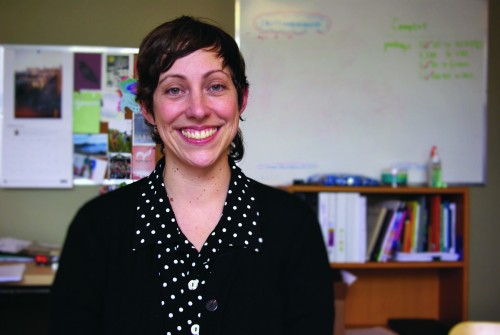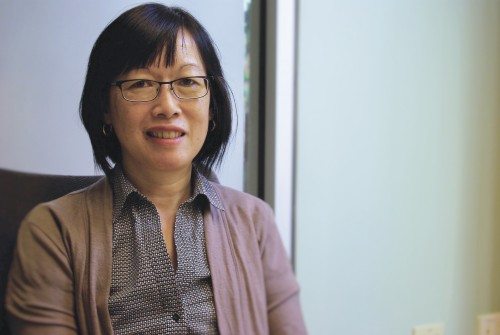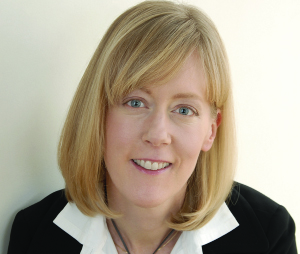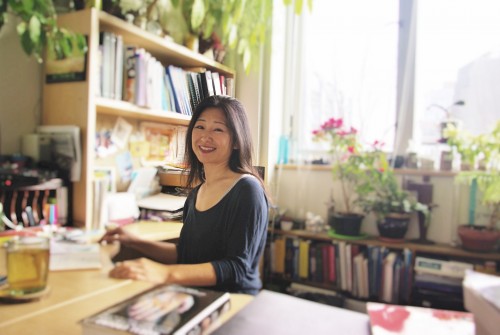Afuwa and Art
Afuwa is an artist from Guyana and a visiting fellow at UBC’s Liu Institute for Global Issues. Afuwa’s artwork has been on display at the Liu Institute and is based on her family photos and the idea of the immigrant body. With many relatives across the globe, she wanted to depict the challenges of living a nomadic life. Family, friends, and human connections are very important to Afuwa, and part of where she finds inspiration. She says that as a person of colour it is particularly important to have people who know you and understand you because you don’t have to explain yourself to them – you are precious to them. The real 24-carat gold that Afuwa used to create these art pieces represents this idea of preciousness and how, when you leave a play, it’s difficult to decide what to take with you. It also alludes to the reality that, while Canada freely exploits Guyana for its gold, it is a lot more reluctant to take in its people. “To me, my family is gold,” she says, “so they can come in.”
Afuwa is very passionate about art and thinks it should be everywhere for people to enjoy. Upon coming to North America, she was disappointed to see that art is elitist. In Guyana and Jamaica, where she lived and worked for some time, the people have a different response to art which she both admires and misses. “The appreciation of the black body is a symbol of anti-colonial independence,” says Afuwa.
Afuwa and International Women’s Day
As a feminist, Afuwa thinks that UBC and other universities should make more of an effort to follow through with their commitments to keeping people safe on campus. Shocked by the series of reported sexual assaults across campus, she thinks that UBC should do more than just remind people to remain safe at night; she thinks as an educational institution there should be more efforts to change the way some young men behave as opposed to victimising young women.
Afuwa is very inspired by humans in general, but this International Women’s Day she is celebrating her mother, grandmother, aunties and many other women that have touched her life. She grew up with strong women and a strong father who could put up with them. She thinks it’s a gift to have a sense of mutual understanding with another person and know them as a place of safety and communion.
Afuwa and Feminism
Afuwa is very interested in the idea of intersectionality and the growing dialogues around it. She thinks it’s fantastic that we are actually at a point where there’s an understanding that the rights of women are conjoined with immigration rights, indigenous solidarity, and class and race struggles. She also appreciates that there are people who are questioning historic white supremacy in Western feminism and that more and more people are becoming educated about these issues to a point where productive conversations can be held regularly.
In Afuwa’s perfect world there would be less capitalism, more beauty, more meaningful solidarity, and art everywhere. Afuwa says that, as women, we must be aware of the messages we take in. Women are the most advertised to group of people and often the ads are not in women’s best interest. Afuwa stresses that women are socialised to be receptive to advertising and we should try our best to be independent thinkers.

